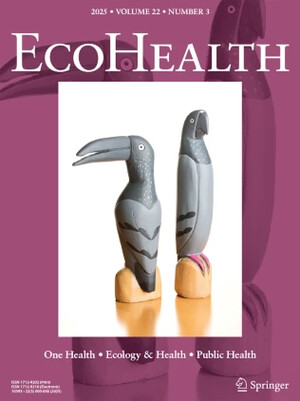
Trypanosoma congolense: Developmental regulation of protein kinases and tyrosine phosphorylation during the life cycle
Abstract
In higher eukaryotes, key steps in the control of growth and proliferation are regulated by protein phosphorylation. However, little is known abot the role of protein phosphorylation in the development cycles of pathogenic protozoa. In Trypanosoma brucei, only the bloodform and procyclic form stages can be obtained in sufficient numbers for biochemical analyses. However, the entire life cycle of Trypanosoma congolense can be generated in vitro, providing sufficient material for analyses of the different developmental stages. The studies reported here provide a series of snapshots documenting the activity of a number of protein serine/threonine kinases and the pattern of tyrosine-phosphorylated proteins throuthout the T. congolense developmental cycle. Metacyclic forms and mammalian bloodforms showed similar profiles of protein kinase activity, as did procyclic forms and epimastigotes. Most tyrosine-phosphorylated proteins were shared between all developmental stages, with the exception of a 100-kDa metacyclic-specific species. The developmental changes in molecules involved in protein phosphorylation in the different developmental stages support the concept that changes in protein phosphorylation networks are important correlates of the developmental process in African trypanosomes.
Citation
Experimental Parasitology;80(3): 507-514









